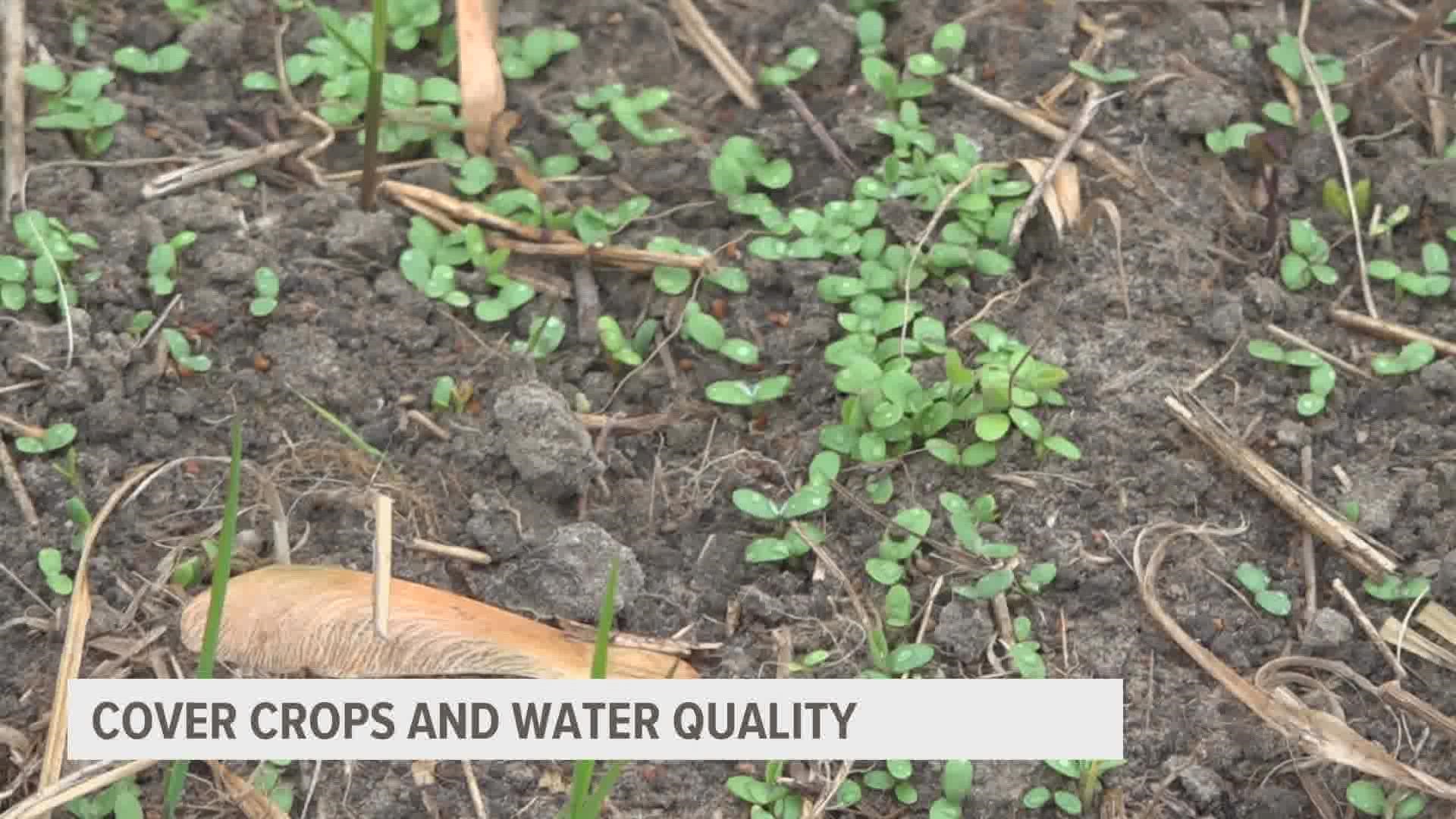DES MOINES, Iowa — That unlikely collaboration was revealed Tuesday at Water Works Park. An Ames-based farmer cooperative and the Des Moines Water Works are teaming up in the name of cover crops and improved water quality.
Cover crops come in a range of varieties. Red clover, ryegrass and winter wheat to name a few.
When planted on farmland, they can help prevent soil erosion and improve soil health.
"They also capture any nutrients that might have been used by the corn and soybeans. That prevents them from getting into waterways," Dan Bjorkland, director of agronomy for Landus said.
High levels of nitrates in drinking water can become hazardous if they rise above 10 mg/L. In 2017 and 2018, Des Moines Water Works came within 7% and 13% respectively to reaching that 10 mg/L benchmark.
Since then, numbers have gone down pretty substantially, but are still more than double that of Omaha, Davenport and Minneapolis.
"I don't know that I can say that improvement has been made. To make improvement, we need millions of acres of land-use practices. Before we can get to that, we have to teach and advocate for those practices. That's what this partnership is all about," Ted Corrigan, CEO of Des Moines Water Works said.
Landus has 600 employees and 7,000 farmer-owners. CEO Matt Carstens says his main goal is transparency in the rural-urban relationship.
"The whole idea is how do we help show that transparency and take a step in the direction of 'we don't have anything to hide,'" Carstens said.
Bjorkland and Corrigan hope to see cover crop planting grow exponentially over the next decade. About 5% of farmland utilizes cover crop in the state, according to Bjorkland.

